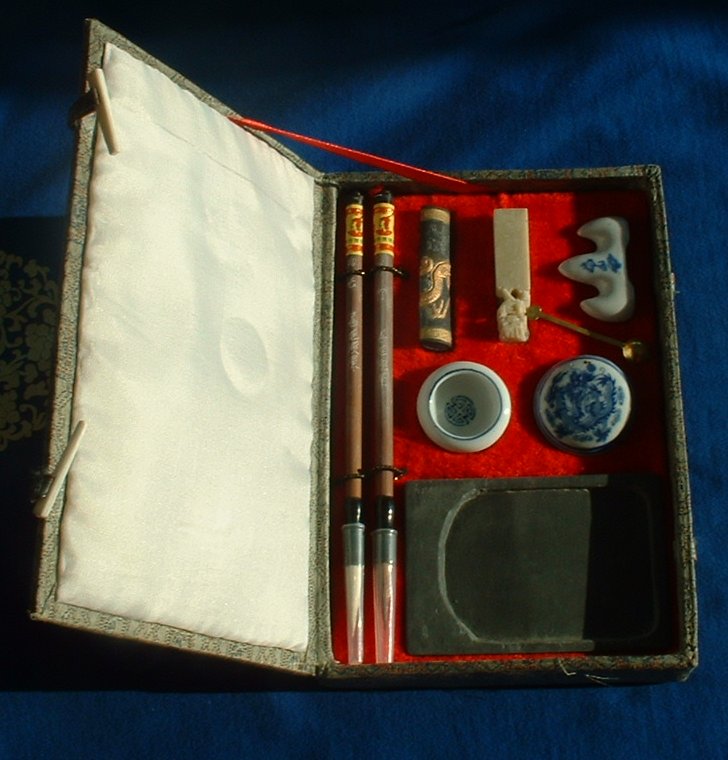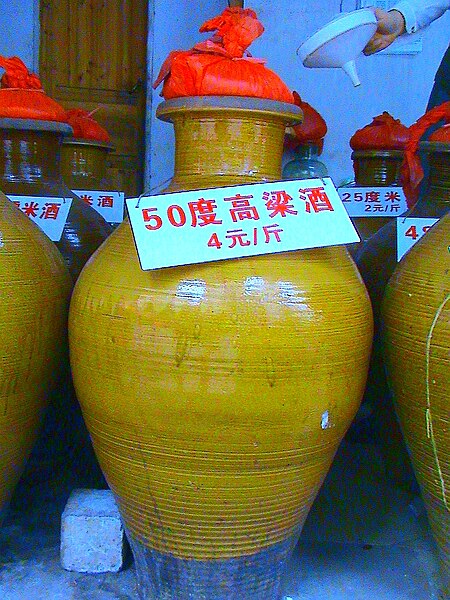- knowyourmeme.com/memes/high-expectations-asian-father
- www.reddit.com/r/AsianParentStories/ 100k+ subs Reddit sub about it
Program in C++. No. Program in A++
. Whenever Ciro's wife starts with "the Asian fetish talk", Ciro reminds her of her own claimed "tall person fetish", and they call it quits.
Asian fetish is much more than sex. It is about the culture, the history, the language. It is the same fetish that makes great mathematicians an Artists do what they do.
When Ciro Santilli was at École Polytechnique, he had to do a presentation for his stupid English courses that all students were forced to take, no matter how good their English was.
The topic was likely something like "pick a country", and Ciro was delighted when he managed to pick "China", after it had gone around a table with many many people before him.
The PowerPoint presentation Ciro made over the weekend was so amazing (and making it was actually fun to make, Ciro actually remembers it a bit!), drawing partly from stuff his wife then girlfriend showed him, that at the end the one of the other students asked him if he had lived in China.
It is a shame Ciro couldn't find the presentation when he wrote this line many many years later. Anything that is not in a BLOB-free monorepo, will disappear, heed my words. But he's certain about two things which it contained:
en.wikipedia.org/wiki/Asian_fetish#History_of_originssubservient, passive, mysterious are understandable. But Hyper-sexual and villainous? OMG have these people never seen real Asians?
en.wikipedia.org/wiki/Asian_fetish#Pornography:
In the United States, women of East and Southeast Asian descent are sometimes stereotyped as subservient, passive, mysterious, villainous in nature, and hyper-sexual.
en.wikipedia.org/wiki/Asian_fetish#Pornography:
The most awesome country in the world, except for it's horrible government as of 2019 which Ciro Santilli is trying to replace with democracy.
Two things come to mind when Ciro Santilli thinks about his sinohpilia.
There is a strong "Ciro Santilli's knowledge hoarding" side to it. Ciro has decided that he has to know EVERYTHING about China. It's culture. It's people. It's art. And so once that has been decided, it becomes inevitable.
But of course, there is also the "which part of Ciro's inner being led to that hoarding decision" part of things. Mishima's quote often comes to mind:
Exoticism is undoubtedly part of it.
Maybe it has something to do with growing up observing 5th+ generation Japanese Brazilians immigrants, well, being Asians and crushing it academically. But also being quiet people, and sometimes misfits. I.e., nerds.
Maybe there is also something to do with the influence Japanese anime, highly popular during Ciro's childhood in Brazil. Ciro, unlike many of his friends, left that relatively early, as he got into the deeper pleasures of natural sciences and then more traditional Asian culture. But still.
And finally perhaps the correlation between sofware engineers and Asian fetish and the correlation between software engineers and Buddhism.
Related on github.com/cirosantilli/china-dictatorship: cirosantilli.com/china-dictatorship/why-does-ciro-santilli-love-china-so-much
Bibliography:
- www.comuseum.com/ some good galleries
Things to do:
- eat zongzi
For some reason Chinese people (and their sphere of influence such as Japan) are obsessed by numbered lists, e.g. stuff like Four Beauties, Four Treasures of the Study and so on!
The concept does exist in the West (e.g. The Seven Wonders of the World), but clearly the Sinosphere is much more obsesse by it!
A modern rendition of the four beauties
. Source. TODO we need a decent older one with CC BY-SA, and illustrating their attributes! Wikimedia failed me.Four Treasures of Chinese Study by a journey of culture (2022)
Source. Over the top and likely without copyright.On Wikipedia we only find the term Scholar-official. But the idea of the ancient Chinese scholar is a bit wider as a concept, and even people who were not trying to be officials could thrive to follow certain aspects of the scholar way of life.
Particular attributes the ideal Chinese scholar would have include:It is in a sense sad (or awesome) that the computer has essentially replaced, or one may argue, enhanced beyong recognition, all of the traditional four arts, to the point that Ciro can't touch anything that is not a computer. Sometimes the old arts live on particularly closely though, e.g. in computer music, computer graphics and computer Go.
- mastery of the Four arts, which also implies the Four Treasures of the Study for caligraphy and painting
- live in a place that includes
One of the best in the world, but you need to know how to find real restaurants if you are not in China.
But worry not, Ciro Santilli has got you covered: github.com/cirosantilli/china-dictatorship/restaurants
- www.youtube.com/channel/UC54SLBnD5k5U3Q6N__UjbAw Chinese Cooking Demystified. Possibly the best YouTube channel at explaining how to make key Chinese dishes and sauces in English.
Some stuff at: cirosantilli.com/china-dictatorship/#the-best-chinese-food but that is bound to die one guesses.
This classification is too restrictive, and too South-centered. But if is worth knowing.
Eaten during Dragon Boat Festival, but can be bought year round.
Buy frozen. Pick the ones with meat and eggs!!! Boil.
This is likely the most famous Chinese poet of all time.
Good website, with poems in Chinese, pinyin and commented translation. Well done!
100 poems website 100tangpoems.wordpress.com/2023/02/27/pure-and-fair/
100 poems website 100tangpoems.wordpress.com/2023/02/27/pure-and-fair/
In Chinese lit. just "Four Great Masterpieces".
This is the one. And the music is amazing: Section "Dream of the Red Chamber 1987 music".
This is just the most charming of the Four Great Classic Novels.
The definitive television series adaptation is obviously Journey to the West. It just manages to capture all the charms of Sun Wukong and Zhu Bajie.
Old illustration of Zhu Bajie
. Source. Needs better identification: en.wikipedia.org/wiki/Talk:Zhu_Bajie#Illustration_date_wrong:_15h_century?Only after Ciro became an adult did he finally understand that Sun Wukong was the basis for Dragon Ball as mentioned at: Figure "19th century illustration of the Journey to the West protagonist Sun Wukong". And that Sun Wukong was a million times more famous overall. Mind blown.
His given name "Wukong" literally means "the one who mastered the void" (Wu = Comprehend, Kong = void), so clearly a Dharma name. Edit: it is actually given in the novel, he was born without name. They seem to be Taoist however.
The family name sun1 孙 is the same character as "grandson", but most educated Chinese people seem to be able to recognize it as a reference to "monkey" from some archaic context not anymore in current usage.
19th century illustration of Sun Wukong
. Source. TODO check that it is actually 19th century. Because en.wikipedia.org/wiki/File:Xiyou2.PNG for Zhu Bajie, obviously from the same print, says it is 15th centure.The definitive Journey to the West adaptation.
There seems to exist a version with full Chinese + English subtitles: www.youtube.com/watch?v=0_r3eWfTMDs&list=PLdAMXqGeRsOkXzuocRkBPhe5RhZ6RotGH&index=2
www.youtube.com/watch?v=e8VWVvHjskM&list=PLIj4BzSwQ-_ueXTO7EBmShk1b3lEqc5b_ official CCTV电视剧 (CCTV TV Series Channel) upload without Chinese + English subtitles.
Title sequence of the Romance of the Three Kingdoms (1994 TV series)
Source. From this you can understand that the number os extras is off the charts!Talks about rebellion of the oppressed (and bandits), and therefore has been controversial throughout the many Chinese dictatorships.
The book is based on real events surrounding 12th century rebel leader Song Jiang during the Song dynasty.
It is also interesting that Mao Zedong was apparently a fan of the novel, although he had to hide that to some extent due to the controversial nature of the material, which could be said to instigate rebellion.
The incredible popularity of the novel can also be seen by the large number of paintings of it found in the Summer Palace.
This is a good novel. It appeals to Ciro Santilli's sensibilities of rebelling against unfairness, and in particular about people who are at the margin of society (at the river margin) doing so. Tax the rich BTW.
It also has always made Ciro quite curious how such novels are not used as a way to inspire people to rebel against the Chinese Communist Party.
Full text uploads of Chinese versions:
- www.gutenberg.org/cache/epub/23863/pg23863.html No table of contents.
Something along:TODO find Chinese.
If two men are destined to meet, they will come together from thousands of miles apart. If they aren't, they will pass by in front of one another and never know about one another's existence.
Uploaded at: uploads.worldlibrary.net/uploads/pdf/20130423230739the_outlaws_of_the_marsh_pdf.pdf TODO legality? World Library seems like a legit website. Reads "Copyrighted materials".
He is extremely despicable and petty, enjoys only useless things, and is vengeful and disloyal. Rooting for sport teams is stupid.
Lance instructor of the 800,000 Imperial Guards (八十万禁军枪棒教头). TODO understand the "枪棒" part: zhidao.baidu.com/question/206659649.html.
The adopted son of Gao Qiu wanted to fuck his wife, and because of this they frame him of planning to take revenge by killing Go Qiu, even though Lin Chong had decided not to take revenge to avoid harming his wife further.
They just keep trying to kill him, until at one point he just gives up and becomes a fugitive.
His story is well told in The Water Margin.
Usually called by others as 林教头 (lin jiaotou, literally Head Instructor Lin, but usually translated as just Instructor Lin).
His original name is Lu Da 魯達
Erniang is way more popular than her ranking in the 108 Stars of Destiny.
This is of course in part because she is one of the only 3 108 Stars of Destiny women. But her story about making human mantou is particularly fun!
She's also quite seductive, which gives directors a good opportunity for a bit of fan service. See e.g. kknews.cc/history/6epp2pp.html for a still from The Water Margin showing some good cleavage for example.
He used to train the 800,000 imperial guard troops at the Capital, much like Lin Chong. He's not one of the 108 Stars of Destiny.
"The Capital" is what now is Kaifeng in Shandong, and it used to be the capital during the (Northern) Song dynasty.
In the novel it is simply often simply called as 东京 (capital of the East), which is now highly ambiguous term that can indicate several different historical capitals! Notably it is the name of modern tokyo.
The novel always uses the term "梁山泊' (liang2 shan1 po1) to refer to the place.
How did the Liangshan ponds form? by CCTV (2019)
Source. Chinese only, but still fun to see the real place.- Suikoden, JRPG that Ciro Santilli played that one when he was a teenager!
Articles were limited to the first 100 out of 301 total. Click here to view all children of Asia.
Articles by others on the same topic
There are currently no matching articles.














